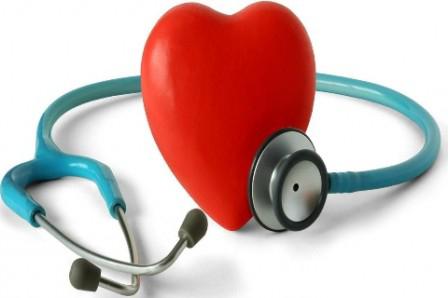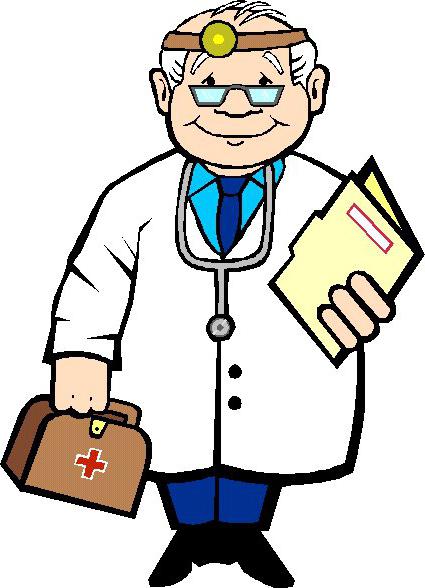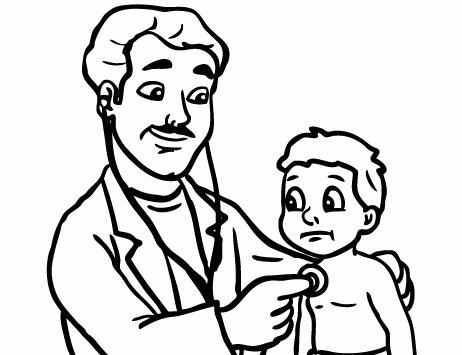The list of activities that are part of a doctor's job description depends on his specialization. In some cases, the worker sees patients, makes diagnoses, and prescribes medications or procedures. In other cases, he or she performs the necessary procedures or operations. In recent years, the work of a specialist has largely consisted of filling out the required documentation, for which you should also prepare. The number of tasks to be completed affects the employee's salary and schedule.

- Geriatrician – who is he and why should you go to him?
- What diseases does a geriatrician treat?
- What is the doctor: a profession or a calling?
- History of the origin of the profession
- What a doctor should know
- How to Become a Doctor
- Which diseases are treated by a family doctor?
- Difference between family doctor and general practitioner
- Merit
- Prospects for the job
- How much does a doctor earn?
- The highest paid medical jobs
- How do you become a doctor?
- Medical careers after class 9
- Why doctors leave medicine
- Professions that a doctor can learn
- Medical assistant
- Medical analyst
- Responsibilities
- Skills and knowledge
Geriatrician – who is he and why should you go to him?
Geriatrics – a specialty of gerontology (the science concerned with all aspects of aging) that deals with the study, prevention and treatment of diseases of aging.
Geriatrician – is a specialist whose job it is to treat older and very old people. It deals with the diagnosis, treatment and prevention of diseases, taking into account the peculiarities of age. As a medical specialty, geriatrics aims to maintain and improve the health of older people, taking into account the specific characteristics of their age, and to prolong and improve their quality of life.
Each disease can take a different course depending on the patient's age. In addition, most drugs are tested on young and middle-aged people and are therefore more suitable for them, while older patients may experience unwanted side effects. A geriatrician is able to assess whether prescribing a particular medication is appropriate and determine the dosage according to age. In addition, older people can have several diseases acquired at different times in their lives at the same time, on average five to eight, sometimes even more. In addition, there are also manifestations of the aging process itself, the so-called geriatric syndromes. The most common include a decrease in memory and muscle mass. For this reason, special considerations must be made when prescribing medications and treatments. For this reason, it is best for older people to consult a geriatrician who will develop the most appropriate examination plan and treatment strategy for the patient, taking into account all age-related changes.
The geriatrician must first determine the treatment strategy: which diseases should be treated first, which after, and which not at all. If there are many, it can even be dangerous to treat all diseases at once. This can affect quality of life and prognosis. The geriatrician also knows how to assess the patient's general condition - how active and independent he is.
What diseases does a geriatrician treat?
The geriatrician deals with the treatment of all age-related diseases, but primarily treats not a single disease, but a series of health problems related to the age-related changes in the body. The most common diseases associated with aging are atherosclerosis and cardiovascular disease, cancer, arthritis, osteoporosis, type 2 diabetes, high blood pressure and Alzheimer's disease. The frequency of these diseases increases exponentially with age.
Lifelong illnesses and injuries can also affect the overall health of the body, and their effects may only become noticeable with age. In addition to the most common diseases mentioned above, other age-related disorders are also possible, including metabolic disorders, digestive disorders, neurological disorders, age-related endocrine changes, psychiatric disorders and other age-related pathologies. A geriatrician provides the full spectrum of medical care for older patients.
Olga Tkacheva, senior independent geriatrician of the Russian Ministry of Health and director of the Russian Gerontological Research and Clinical Center at the Pirogov Russian National Scientific Medical University, says the following about the specifics of the work of a geriatrician and the uniqueness of this specialty:
«The most important thing is that the geriatrician makes a very careful selection of medications. This is necessary for more effective and safer therapy. An older person's body perceives them differently, and the liver and kidneys, which play a large role in processing and excreting medications, no longer function as they once did.
This is particularly important because older people usually have multiple illnesses and are prescribed several different medications at the same time. For this reason, any new medication must be dosed very carefully.
In this case, a geriatrician is required. For example, after assessing the patient's condition, he can stop certain medications completely. That can only be a good thing - not all illnesses need to be treated aggressively at this age, and many medications can do more harm than some illnesses.
What is the doctor: a profession or a calling?

Before a prospective doctor becomes a good specialist, he or she must overcome many challenges. These affect absolutely all areas of his life. Training in this area begins immediately after leaving school and lasts at least six years. There are many challenges in the first year of studying medicine: you have to master several complex medical disciplines at the same time and you must never be lazy or skip lectures, because a lack of information can cost you your life later. In addition, you have to put your personal life and friends on hold for a long time.
The decision to become a doctor is not only difficult because of the enormous amount of time spent studying, it also places higher demands on the personality of the future healer: he must be responsible, decisive, friendly, compassionate, patient and sensitive. A real doctor cannot be callous and insensitive to human suffering. Sometimes doctors have to sacrifice their own plans and interests to help people, even when their own health is at risk.
The medical profession is more than training in certain activities, skills and knowledge. It is a calling, a purpose and a place in a person's life.
History of the origin of the profession

The history of the medical profession begins in ancient times. Many hundreds of years before our era, there lived extraordinary people who were able to cure all kinds of diseases. They used improvised remedies - herbs, fruits and their roots, and tinctures. They were considered messengers of the gods, as illnesses were also seen as a punishment from higher powers. Such healers were respected and feared because their profession was considered magical and enchanting. The medical profession arose with the emergence of an enlightened and intelligent man.
Many people associate medicine as a science with a famous person - Hippocrates. It was he who began to carefully study the peculiarities of the human body. By the way, the well-known classification of people according to temperament types goes back to his writings. This man changed people's thinking and helped them break free from the stereotypical connection between medicine and religion. He proved that every disease is the result of a pathological process in the human body and arises from completely natural causes. Asclepides, Galen, Vesalius and other prominent researchers are the founders of medical science and the emergence of the medical profession.
What a doctor should know
The doctor must know that medical technology does not stand still. New medications or treatments are being developed. That's why you have to constantly learn and study, take advanced training courses and attend seminars.
It is necessary to look for new solutions and treatments for the most common diseases. For this reason, only a specialist can absorb knowledge quickly and be ready to skillfully combine theory and practice.
In addition, the doctor must be able to:

- provide first aid;
- to diagnose different types of diseases
- carry out competent treatment;
- to rehabilitate after a serious illness;
- to prevent disease;
- educate the public;
- research the latest medications and methods for treating diseases.
Only with all these skills is a doctor able to carry out his duties successfully.
Now you know what being a doctor is all about and what you need to know and be able to do in order to join the ranks of professionals.
How to Become a Doctor
To become a doctor, you must finish your school education and complete a medical degree. After completing your specialist studies, studying medicine takes 5.5 to 6 years in full-time mode. Medical graduates receive a diploma as general practitioners and can work in polyclinics, hospitals and health centers.
Anyone who would like to specialize further or study further can apply for a specialist doctor's program. Depending on the specialization you choose, this lasts between two and seven years. Assistant physicians can also pursue academic work.
Every 5 to 6 years, doctors must demonstrate their competence and undergo further training and an aptitude test in order to renew their license.
Before studying, applicants must pass Russian (compulsory subject), chemistry and biology (main subjects). The admissions committee admits students based on their USE results or internal exams. Students with good grades can be admitted free of charge.
To apply for admission to a doctoral program, you must submit the following to the admissions office
- A copy of your passport;
- SNILS;
- medical certificate;
- Application form;
- school leaving certificate dated 11;
- Final results of USE or internal exams;
- 3*4 color photos.
The work is always relevant and needed. It requires a serious approach and hard study, takes up a lot of free time, but gives people the opportunity to help others, be relevant and have a career in an industry they love.
Which diseases are treated by a family doctor?
A GP will be seen if you have a health condition that is not good for you. Signs of this may include fever, shortness of breath, cough, digestive problems, headaches and dizziness, numbness in the limbs, spinal movement disorders, pain syndromes, increased blood pressure, etc.
He treats infectious diseases, diseases of the respiratory system, immune system, nervous system, musculoskeletal system, gastrointestinal diseases and metabolic diseases. If an illness does not fall within his or her area of responsibility, the doctor refers the patient to specialists within specialized medical care.
Difference between family doctor and general practitioner
Although the profession of general practitioner is not new, not everyone understands its nature and how it differs from therapeutic work.
Put simply, a general practitioner is a person who has completed thorough professional training. He or she is knowledgeable in many areas of medicine and can therefore help a patient with a variety of conditions.

The main differences between a general practitioner and a general practitioner are:
- He performs many medical tests and procedures and has diagnostic equipment;
- He rarely refers patients to specialists because he is competent in many areas;
- Treats adults and children;
- Provides first aid;
- Knows family history and genetic risk factors for diseases so that he/she can select effective preventive measures;
- Supervises patients with chronic illnesses;
- helps to solve not only medical, but also social and psychological problems.
In the family doctor's practice, patients can receive multidisciplinary medical and preventive care. The doctor does not rush the patient to a specialist like a general practitioner, but rather carries out the diagnosis and makes the diagnosis himself. This ensures that the patient receives expert care on the spot without having to visit other doctors and waste their time. After the first visit, an effective, individually tailored treatment plan is created so that the patient's condition improves quickly.
The therapist, on the other hand, is limited to providing initial care, issuing medical certificates and referring patients to specialists. This leads to the profession becoming less and less prestigious and patients preferring to work with a GP.
Merit
The information about doctors' earnings that can be found on the Internet varies greatly. It is important to know that the size of the salary depends on the medical institution, the workload and the demand for the doctor's specialty (some are consulted more often, others less often).
In Moscow, the average salary of a doctor is 76,625 rubles, in the entire Russian Federation it is 66,000 rubles. The range of total earnings in different cities and organizations is from about 25 to 100 thousand rubles - that's how big the difference is. There is information that working in remote regions brings more profit than in large cities. Statistics for doctors in certain specialties can be found on the Internet.
Prospects for the job
The medical profession is not only demanding and interesting. It offers excellent opportunities for development and improvement. There are two additional levels of training at medical faculties - postgraduate and master's degree courses. These advanced degrees provide opportunities for academic advancement and research in the medical field.
Employment prospects depend on the doctor's specialty and the facility in which he or she works. Unfortunately, working in government facilities often involves a lot of 'paperwork', but there are also new private medical centers that are now opening. Working in such institutions provides the opportunity to earn more, work in more comfortable conditions and with modern (sometimes expensive) equipment, and sometimes receive advanced training for free at the employer's expense.
In addition, the possibility of opening your own health center and creating a team of specialists is an interesting prospect. It can be aimed at providing advisory services or providing access to laboratory tests, specialized medical examinations and medical interventions. Of course, this is a complicated process, but for doctors who want to start their own business, the result is worth it.
How much does a doctor earn?
Doctors' salaries vary widely and depend on their ambition. At the start, a qualified medical professional can expect a salary of 20-30,000 rubles. The average salary of a doctor in a state hospital or polyclinic is 50-100 thousand rubles. These amounts depend on the specialty of the specialist, his experience and the number of shifts worked. Doctors with scientific degrees can earn 150,000-200,000 per month or more in a government-funded institution. Your academic achievements will be evaluated separately. An employee of a private clinic earns orders of magnitude more than a government employee; his salary usually starts from 80-120 thousand rubles.
The highest paid medical jobs
In commercial clinics, representatives of all existing specialties can count on high salaries. At the same time, there are some areas that are traditionally considered profitable. Statistically, the highest paid professions in medicine are: plastic surgeon, sports doctor, dentist, psychotherapist, obstetrician in a private clinic, neurosurgeon, cardiologist, dermatologist and venereologist.
How do you become a doctor?
To become a doctor, a college degree is required. Most of these universities require good grades in Russian, social studies, biology and chemistry. You don't have to decide on a course of study straight away. During your studies, the various areas of medicine will be explained to you in detail. The subspecialization is acquired in the final years of study, during internships and specialist training. Before applying to the University of Applied Sciences, it is recommended that you take a career counseling test. The tests will give you an idea of your chances of success in your chosen field.
Medical careers after class 9
If you decide to study medicine, you can check your attitude towards the specialty you want to study and even save a year of study. If you enroll after 9th grade and study for a year, you will receive a high school diploma. This gives them the opportunity to apply for admission to the institute. Anyone who decides to complete a vocational school receives a diploma as a nurse, paramedic, paramedic or pharmacist (depending on the specialty).
If you choose to become a doctor, you will have the opportunity to receive training in a field that will always be in demand. Medicine is a guarantee of moral job satisfaction, combined with good opportunities for advancement, recognition and good salaries.
Why doctors leave medicine
There are various reasons why people leave the job they love: some have family problems, others have poor health. Some people realize that 'this isn't for me' and decide to radically change their life. But medicine is a specific field in which there are practically no random people.
That is why most doctors leave their profession due to emotional burnout - a syndrome that occurs against the background of constant stress. The causes are, as usual, both subjective and objective:
- Irregular working hours and constant overtime;
- Low wages and the need to work two or even three jobs;
- Frequent conflicts with both superiors and patients, including lawsuits;
- Discrediting and devaluation of the profession in society and a decline in the reputation of the profession;
- paperwork, inspections;
- 'Transfer' when it is not possible to pay attention to each patient.
As a result, a 'burnt out' doctor becomes completely indifferent to his work and people, and his tasks become a formality. As psychologists say, such a doctor becomes dangerous both for himself and for patients: indifference significantly increases the rate of medical errors.
This is a good time to decide how to proceed: either seek retraining and a quieter job, or give up medical care altogether. We advise you to look for a related profession: this way retraining will be easier and the previous experience will not be wasted.

Professions that a doctor can learn
Now it's time to talk about what you can do with a medical degree if you're tired of treating people.
Medical assistant
The most obvious locations are pharmaceutical companies. You need not only sales managers, but also people with special training. Who else other than a former GP or pediatrician would be suitable for this position?
But not only new medicines can be marketed, a doctor with experience can also, for example, sell medical devices, instruments, new devices, participate in tenders for new products by state clinics, etc.
However, you should be prepared for this - pharmaceutical companies have very strict requirements for the qualifications of their employees:
- A completed pharmacy degree or retraining is an advantage;
- Knowledge of marketing principles and relevant legislation is required;
- Knowledge of using computer programs such as 1C: Accounting and others is required;
- Sales skills and willingness to travel frequently are required;
- A private car and a good driving license are often required.
Medical analyst
Practical medicine is far from IT, but that has changed in recent years. Big data technologies (large amounts of data) are increasingly being used, especially against the backdrop of the COVID-19 pandemic. However, there is a big problem: the average analyst with an IT background has little knowledge of medicine. And this is exactly where someone with a medical background comes in very handy.
What exactly can a medical analyst do? There are many examples, here are some of them:
- Creation of new analysis and diagnostic systems based on diagnoses in EMIAS;
- Creation of predictive models for morbidity and epidemiological conditions in a country or specific regions;
- Tracking costs and building systems to optimize treatment costs;
- Creation of systems for long-term monitoring of patient health;
- Development of telemedicine and telediagnostics.
Responsibilities
A doctor's scope of practice varies depending on the specialty. In some cases, the doctor examines patients, makes a diagnosis and prescribes appropriate treatment. In other cases, the specialist carries out the necessary procedures or operations. Filling out medical records is also part of his duties.
The most important qualities that a doctor should possess are.
- Responsibility;
- an excellent memory;
- good eyesight and hearing;
- Reaction time;
- perseverance;
- fine motor skills;
- Neatness;
- Punctuality;
- Patience;
- mindfulness;
- analytical mindset;
- Friendliness;
- tolerance to stress;
- sense of tact;
- efficiency;
- Communication skills.
Skills and knowledge
Being a doctor is an intellectually, physically and neuropsychologically demanding profession. The professional activity involves analyzing, comparing and interpreting data as well as selecting effective treatments for diseases. In addition to medical disciplines, a doctor must have in-depth knowledge of biology, chemistry and physics, be able to use specialized medical instruments and equipment and provide emergency treatment.
A public hospital or polyclinic is not the only place where doctors work. Today, commercial medicine continues to grow, and private clinics, rehabilitation and diagnostic centers are opening their doors. Experienced specialists can count on a managerial position (head of department, head of clinic). With the appropriate license, any doctor can run a private practice.
The most qualified health professionals often combine their direct tasks with teaching or research: they write scientific papers, publish books and are involved in the development of medical products, instruments and technical devices.
Read more:- Podiatrist what kind of doctor.
- What other names are there for doctors?.
- Which doctor do you go to if you have joint problems?.
- Traumatology orthopedist which doctor.
- Which doctor treats the hip joints.
- The doctor who straightens the bones.
- Leg Discomfort – Which Doctor Should I See?.
- Which doctor treats flat feet?.
